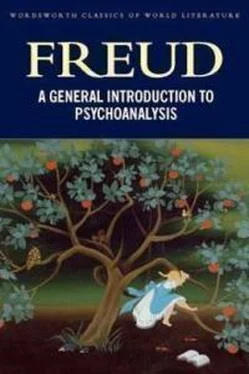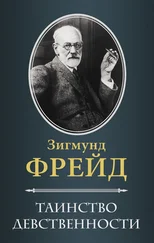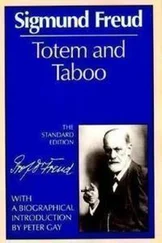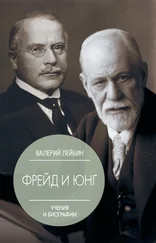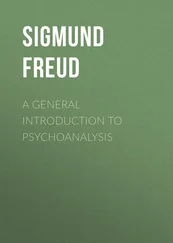To appreciate the full significance of the aforementioned difference between the two groups of instincts, we must digress considerably and introduce a consideration which we must needs call economic . Thereby we enter upon one of the most important but unfortunately one of the most obscure domains of psychoanalysis. We ask ourselves whether a fundamental purpose is recognizable in the workings of our psychological apparatus, and answer immediately that this purpose is the pursuit of pleasurable excitement. It seems as if our entire psychological activity were directed toward gaining pleasurable stimulation, toward avoiding painful ones; that it is regulated automatically by the principle of pleasure . Now we should like to know, above all, what conditions cause the creation of pleasure and pain, but here we fall short. We may only venture to say that pleasurable excitation in some way involves lessening, lowering or obliterating the amount of stimuli present in the psychic apparatus. This amount, on the other hand, is increased by pain. Examination of the most intense pleasurable excitement accessible to man, the pleasure which accompanies the performance of the sexual act, leaves small doubt on this point. Since such processes of pleasure are concerned with the destinies of quantities of psychic excitation or energy, we call considerations of this sort economic. It thus appears that we can describe the tasks and performances of the psychic apparatus in different and more generalized terms than by the emphasis of the pursuit of pleasure. We may say that the psychic apparatus serves the purpose of mastering and bringing to rest the mass of stimuli and the stimulating forces which approach it. The sexual instincts obviously show their aim of pleasurable excitement from the beginning to the end of their development; they retain this original function without much change. The ego instincts strive at first for the same thing. But through the influence of their teacher, necessity, the ego instincts soon learn to adduce some qualification to the principle of pleasure. The task of avoiding pain becomes an objective almost comparable to the gain of pleasure; the ego learns that its direct gratification is unavoidably withheld, the gain of pleasurable excitement postponed, that always a certain amount of pain must be borne and certain sources of pleasure entirely relinquished. This educated ego has become "reasonable." It is no longer controlled by the principle of pleasure, but by the principle of fact , which at bottom also aims at pleasure, but pleasure which is postponed and lessened by considerations of fact.
The transition from the pleasure principle to that of fact is the most important advance in the development of the ego. We already know that the sexual instincts pass through this stage unwillingly and late. We shall presently learn the consequence to man of the fact that his sexuality admits of such a loose relation to the external realities of his life. Yet one more observation belongs here. Since the ego of man has, like the libido, its history of evolution, you will not be surprised to hear that there are "ego–regressions," and you will want to know what role this return of the ego to former phases of development plays in neurotic disease.
Twenty-third Lecture
General Theory of the Neuroses - The Development of the Symptoms
In the layman's eyes the symptom shows the nature of the disease, and cure means removal of symptoms. The physician, however, finds it important to distinguish the symptoms from the disease and recognizes that doing away with the symptoms is not necessarily curing the disease. Of course, the only tangible thing left over after the removal of the symptoms is the capacity to build new symptoms. Accordingly, for the time being, let us accept the layman's viewpoint and consider the understanding of the symptoms as equivalent to the understanding of the sickness.
The symptoms,—of course, we are dealing here with psychic (or psychogenic) symptoms, and psychic illness—are acts which are detrimental to life as a whole, or which are at least useless; frequently they are obnoxious to the individual who performs them and are accompanied by distaste and suffering. The principal injury lies in the psychic exertion which they cost, and in the further exertion needed to combat them. The price these efforts exact may, when there is an extensive development of the symptoms, bring about an extraordinary impoverishment of the personality of the patient with respect to his available psychic energy, and consequently cripple him in all the important tasks of life. Since such an outcome is dependent on the amount of energy so utilized, you will readily understand that "being sick" is essentially a practical concept. But if you take a theoretical standpoint and disregard these quantitative relations, you can readily say that we are all sick, or rather neurotic, since the conditions favorable to the development of symptoms are demonstrable also among normal persons.
As to the neurotic symptoms, we already know that they are the result of a conflict aroused by a new form of gratifying the libido. The two forces that have contended against each other meet once more in the symptom; they become reconciled through the compromise of a symptom development. That is why the symptom is capable of such resistance; it is sustained from both sides. We also know that one of the two partners to the conflict is the unsatisfied libido, frustrated by reality, which must now seek other means for its satisfaction. If reality remains inflexible even where the libido is prepared to take another object in place of the one denied it, the libido will then finally be compelled to resort to regression and to seek gratification in one of the earlier stages in its organizations already out–lived, or by means of one of the objects given up in the past. Along the path of regression the libido is enticed by fixations which it has left behind at these stages in its development.
Here the development toward perversion branches off sharply from that of the neuroses. If the regressions do not awaken the resistance of the ego, then a neurosis does not follow and the libido arrives at some actual, even if abnormal, satisfaction. The ego, however, controls not alone consciousness, but also the approaches to motor innervation, and hence the realization of psychic impulses. If the ego then does not approve this regression, the conflict takes place. The libido is locked out, as it were, and must seek refuge in some place where it can find an outlet for its fund of energy, in accordance with the controlling demands for pleasurable gratification. It must withdraw from the ego. Such an evasion is offered by the fixations established in the course of its evolution and now traversed regressively, against which the ego had, at the time, protected itself by suppressions. The libido, streaming back, occupies these suppressed positions and thus withdraws from before the ego and its laws. At the same time, however, it throws off all the influences acquired under its tutelage. The libido could be guided so long as there was a possibility of its being satisfied; under the double pressure of external and internal denial it becomes unruly and harks back to former and more happy times. Such is its character, fundamentally unchangeable. The ideas which the libido now takes over in order to hold its energy belong to the system of the unconscious, and are therefore subject to its peculiar processes, especially elaboration and displacement. Conditions are set up here which are entirely comparable to those of dream formation. Just as the latent dream, the fulfillment of a wish–phantasy, is first built up in the unconsciousness, but must then pass through conscious processes before, censored and approved, it can enter into the compromise construction of the manifest dream, so the ideas representing the libido in the unconscious must still contend against the power of the fore–conscious ego. The opposition that has arisen against it in the ego follows it down by a "counter–siege" and forces it to choose such an expression as will serve at the same time to express itself. Thus, then, the symptom comes into being as a much distorted offshoot from the unconscious libidinous wish–fulfillment, an artificially selected ambiguity—with two entirely contradictory meanings. In this last point alone do we realize a difference between dream and symptom development, for the only fore–conscious purpose in dream formation is the maintenance of sleep, the exclusion from consciousness of anything which may disturb sleep; but it does not necessarily oppose the unconscious wish impulse with an insistent "No." Quite the contrary; the purpose of the dream may be more tolerant, because the situation of the sleeper is a less dangerous one. The exit to reality is closed only through the condition of sleep.
Читать дальше
